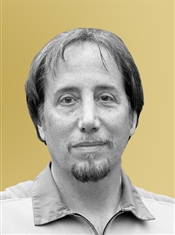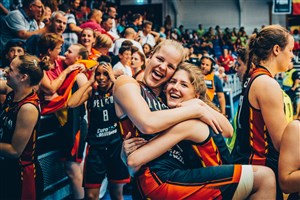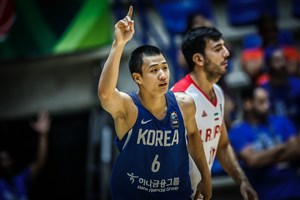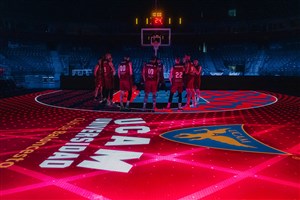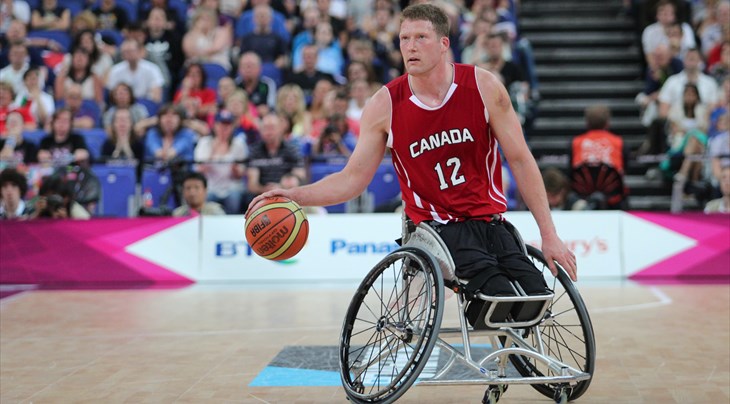
He's back... Anderson returns as Canada's Hamburg(er) helper
CHARLOTTE (Steve Goldberg's Wheel World) - It may be his birthday today but it's his teammates, along with the officials and supporters of Wheelchair Basketball Canada who feel they are the ones receiving the gift with the return of Patrick Anderson to the men's national team for the IWBF Americas Cup tournament in Cali, Colombia that starts on Wednesday.
After the most unpleasant stretch of its wheelchair basketball history since Canada achieved their first international medal in 1986, the men of the maple leaf are getting the band back together to lock down a place at next year's IWBF World Championships in Hamburg, Germany.
Arguably the world's best wheelchair basketball player for almost two decades, and possibly of all time with seven Paralympic and World Championship medals (4 gold, 1 silver, 2 bronze), Anderson is back in the squad that looks to combine the big game experience of fellow London 2012 gold medalists David Eng, Bo Hedges, and Tyler Miller with several veterans of Rio and a crop of senior team rookies.
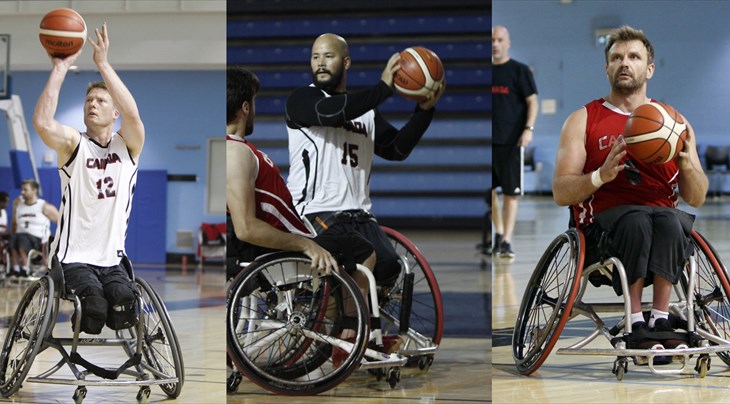 Patrick Anderson, David Eng, and Bo Hedges (left to right) join Tyler Miller in giving Canada four Paralympic gold medalists on the court in Cali this week. Photos courtesy of Wheelchair Basketball Canada.
Patrick Anderson, David Eng, and Bo Hedges (left to right) join Tyler Miller in giving Canada four Paralympic gold medalists on the court in Cali this week. Photos courtesy of Wheelchair Basketball Canada.
A hyper-focused and diligent practitioner of the game, Anderson first thought a decade was enough when he first retired from international play after the Beijing Paralympics in 2008, getting married and moving to New York to study the other thing he is really good at – music.
"In my mind, I retired once. After Beijing, I really thought I was done for a couple of years there and then changed my mind coming into London." Patrick Anderson
By 2011 though, he was back on the court and helping lift Canada to their third gold medal in four Paralympics in 2012. Giving priority to his family and the music, he left the international game again.
"Since London, I tried to be clear as I could that I was taking that one (Rio) off to focus on other things," says Anderson, who began performing and recording with his wife Anna in a band called The Lay Awakes.
The headline for my column previewing the 2013 Americas Cup tournament in Bogota read, "Can Canada rule the world without Anderson?"
By the end of that tournament the answer was far beyond a simple no. Canada went from first to (certainly their) worst, with startling losses, and a sixth place finish that left them watching the 2014 tournament from the outside.
"We lost to a couple of teams that the program had never lost to in major competition before," says Hedges. "With the changeover in the personnel from the year before, some injuries we had; we still felt we still felt we were good enough to qualify and it was a big hit for those veterans who were there."
While claiming a world title was a question, not getting to the World Championship was a scenario that I don't believe anyone thought possible. But it happened.
To be clear, it was more than missing Anderson. Canada also lost three other triple gold medalists - Dave Durepos, Joey Johnson, Richard Peter - to retirement after London.
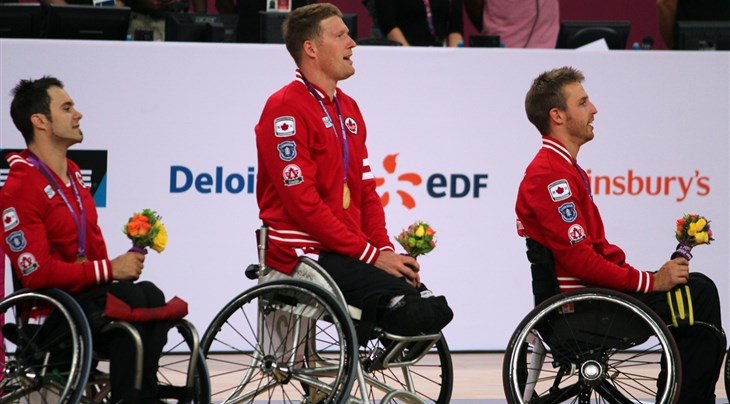 Canada has won 10 medals in Paralympic and World Cup competition and only Anderson has been there for 7 of them, including gold in London 2012. Photo by Steve Goldberg/SCS Media.
Canada has won 10 medals in Paralympic and World Cup competition and only Anderson has been there for 7 of them, including gold in London 2012. Photo by Steve Goldberg/SCS Media.
It was a generation that, from 1990 to 2012, knew nothing but success.
"The feeling of not qualifying that year, especially after the high of London, was a big hit," says Eng. "Emotionally, it was really hard, probably one of the worst feelings ever."
A year later, Canada regrouped to finish second at the 2015 Toronto Parapan American Games but their qualification for Rio was tempered by a final game pasting from the USA men who were clearly on the ascent.
The issues were not solved by the time they got to Brazil and Canada finished 11th out of 12 teams, their only win over Algeria in the placement game.
"In every sport, there always comes along a physical specimen who is ideally suited for that particular sport and the guy becomes a superstar," the late Canadian coach Jerry Tonello said in a 2012 interview. "We have Pat. Pat is the perfect wheelchair basketball machine."
The Fergus, Ontario native introduced himself at the 1998 World Championships, then called the Gold Cup, in Sydney as Australia prepped to host the Paralympics two years later. Only 19 years old, the tournament's leading scorer would help Canada to the podium with 26 points, 8 rebounds, and 8 assists in the bronze medal game.
Two years later, he would lead Canada's men to the first of three Paralympic gold medals, and a silver, in four consecutive games. 23 points and 13 rebounds over the Netherlands while his defense was just as impressive, limiting the play of the great Dutch star Gert-Jan van der Linden.
Canada has progressed to the semifinals in half of the 22 Paralympic and World Championship tournaments in which they have played from their Paralympic debut in 1968 and have finished no lower than 5th in 17 of them.
| Finish | Paralympic Games (12) | World Championships (10) |
| 1st | 2000, 2004, 2012 | 2006 |
| 2nd | 2008 | 1986 |
| 3rd | 1990, 1994, 1998, 2002 | |
| 4th | 1992 | |
| 5th | 1972*, 1980, 1984, 1988, 1996 (*Div. II) | 1979 |
| 6th | 1983 | |
| 7th | 1975, 2010 | |
| 8th | 1968 | |
| 11th | 2016 |
Matteo Feriani, Canada's new head coach, didn't know that Anderson would be back when he signed on last March.
"It was a wonderful present and a pleasant surprise," he says about seeing the athlete many consider wheelchair basketball's GOAT at the training center. "Who wouldn't be happy?"
As an assistant coach with Australia at London 2012, part of Feriani's job was to scheme how to stop Anderson. How did that work out?, I asked.
"Against him, not very well," he laughed.
Feriani sounded relaxed on the phone, telling me, "the work of the guys gives me so much confidence, there is no pressure".
Eng and Hedges both endorse the effect of training and playing with their old mate will have on the younger players, two of whom weren't born yet when Anderson played his first World Championship game in '98.
"Everybody on the team sees Pat as a natural and gifted athlete but they never saw the really hard work he puts in even though he's so talented," says Eng. "There's nobody who works harder at the particulars than Pat."
He also added, "For Pat, having those four years off was a great thing. He's like a young Pat again energy-wise and focus-wise."
So, does this make Canada the favorite in Cali? Hedges says humbly that their goal is to make semifinals, which would qualify them for Hamburg.
With nine members of the USA's gold medal team from Rio playing, I say that makes the Americans still the team to beat, but I would be quite surprised if they're not playing Canada at the end.
Regardless, Anderson will have a far more important prize waiting for him back home as he and Anna are expecting their second child just ten days after the final. Canada's opposition in Cali may hope that baby comes a bit earlier.
Steve Goldberg
FIBA
FIBA's columnists write on a wide range of topics relating to basketball that are of interest to them. The opinions they express are their own and in no way reflect those of FIBA.
FIBA takes no responsibility and gives no guarantees, warranties or representations, implied or otherwise, for the content or accuracy of the content and opinion expressed in the above article.
To help make this column as inclusive as possible, please send any national or international event information, story suggestions, or comments to wheelworldmail@gmail.com.
